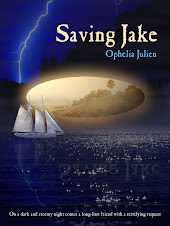One week ago was Halloween, and six days ago was All Saints' Day, or, in Mexico, The Day of the Dead. Jim and I are currently taking conversational Spanish classes, and our instructor, a very fun and funny gentleman named Rene, talked about The Day of the Dead a little bit in class. I've seen pictures of it and it's been featured in movies, but I don't know very much about it.
I know that Japanese culture also has its particular time to honor ancestors who have gone before, although the Obon festival lasts more than one day and usually happens in July or August.
Both traditions include visiting the cemetery and bringing offerings to relatives who no longer walk the earth. Sometimes meals are eaten there. The grave sites are also spruced up during the celebration.
And all of this got me thinking - are people of other cultures on to something that our western culture used to have but somehow lost? A little over a hundred years ago, people in this country just seemed more, well, "used to" the concept of death. Dead relatives were waked in their own homes. Portraits were taken, sometimes posing those no longer alive next to their living, breathing family members. Nowadays, portraits like that disturb the heck out of us - I admit it. Memento Mori portraits are something I generally avoid unless I'm being macabre or have a reason to look at them. But why is that?
We have separated ourselves from the idea of death to the point where I think our culture is obsessed with youth and the idea of living forever. We kind of ignore the fact that all of us are going to go at some point or other, and focusing on that is considered maudlin or depressing or any number of things, none of which are very good. Stephen King once joked about how separated we have become from death and how we can remedy that by suggesting field trips to an undertaker, rather like a fast food outing, where children could learn about what happens after death. He added in his typical dark humor that the highlight of the trip would be "the viewing of the McCorpse."
I went to my first wake when I was about seven and I was so overwhelmed (and not in a good way) by viewing the body up close and personally that I needed weeks to process the vision out of my head. I wasn't scared the way I was when I watched a horror movie. And I wasn't sad because I didn't know the person except by name. But the glimpse of a dead body in a casket stayed with me for a very long time and even years later just the sight of a casket, even closed, would bring everything back to me in unhappy fashion. I wonder if kids growing up with their great-grandparents being waked in their own homes didn't have a better handle on the reality of death.
I write about dead people a lot. It's my job and one I generally enjoy doing. On the other hand, writing what I do forces me to focus on dying, death, all attendant procedures and props (like wakes, funerals, gravestones, and the like) and what may (or may not) happen after one has shuffled off Shakespeare's mortal coil. And sometimes I'm fine with it, and sometimes, being a product of my culture, I become depressed.
But in the end, death is just another part of life, right? Someone else's passing, our own - no one gets out of here alive, as they say. I don't know if I can pull off Robert Louis Stevenson's "Glad did I live and gladly die," but I sure hope to exit in peace and with grace.





No comments:
Post a Comment